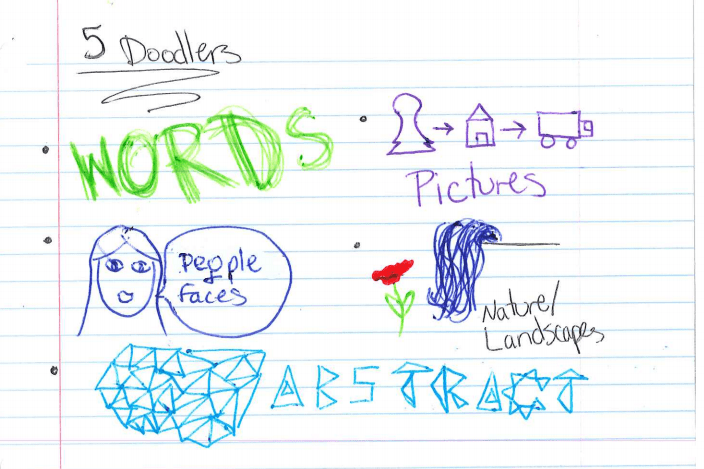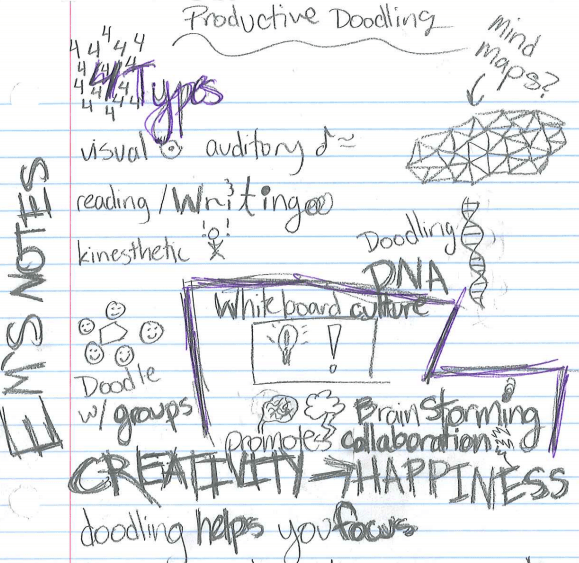Doodling has long been viewed as a sign of inattention and slacking off. Many people walk out of meetings and seminars with notebooks full of simple drawings thinking that the silly picture in the corner is all they retained from the discussion. But don’t despair, dear doodlers! Recent research has found that your drawings actually increase your focus and information retention.
Doodling has been wrongly equated with “spacing out” because many people simply saw the act of drawing and ignored any connection it had to the task at hand. Also referred to as visual language, doodling actually makes you focus on what you’re hearing and helps keep your mind from wandering. While daydreaming can completely remove you from the present moment, doodling means you’re focusing on putting the information you’re receiving into a format that’s better for your brain. Experts have even been teaching businesses how to attack problems with visual thinking in recent years.
In a 2009 study, the group of doodlers retained 29 percent more information than the non-doodling control group. As Andrade explained, our brains are designed to constantly process information, and lack of stimulation leads to a lack of focus. Doodling provides the right amount of cognitive stimulation to prevent wandering minds.
Not everyone doodles the same way. Just like there are four different learning modes (visual, auditory, reading/writing, and kinesthetic), Sunni Brown tells us there are five types of doodlers:
- Word doodlers: These people write and retrace over key words. The physical act of rewriting words and phrases helps the mind engage more.
- People and faces: They are more likely to be proficient at dealing with customers and emotions. The quick cartoons aid information processing, so the idea sticks in their heads.
- Pictures: They create icons that are easy for everyone in a group to recognize. This is especially helpful in group projects.
- Abstract: These doodlers sketch geometric concepts, which allows for a shift from linear to organic thought. Abstract doodlers often use this to clear their minds before starting a project.
- Nature/Landscapes: Creating nature scenes can ease these doodlers’ minds and especially helps with focus.
While researching for this article, I realized I’m actually an abstract and word doodler:
Everyone possesses what Brown calls “doodling DNA.” What kind of doodler are you?
Original Source: http://www.the1thing.com/small-business-advice/doodling-is-good-for-your-noodle/


